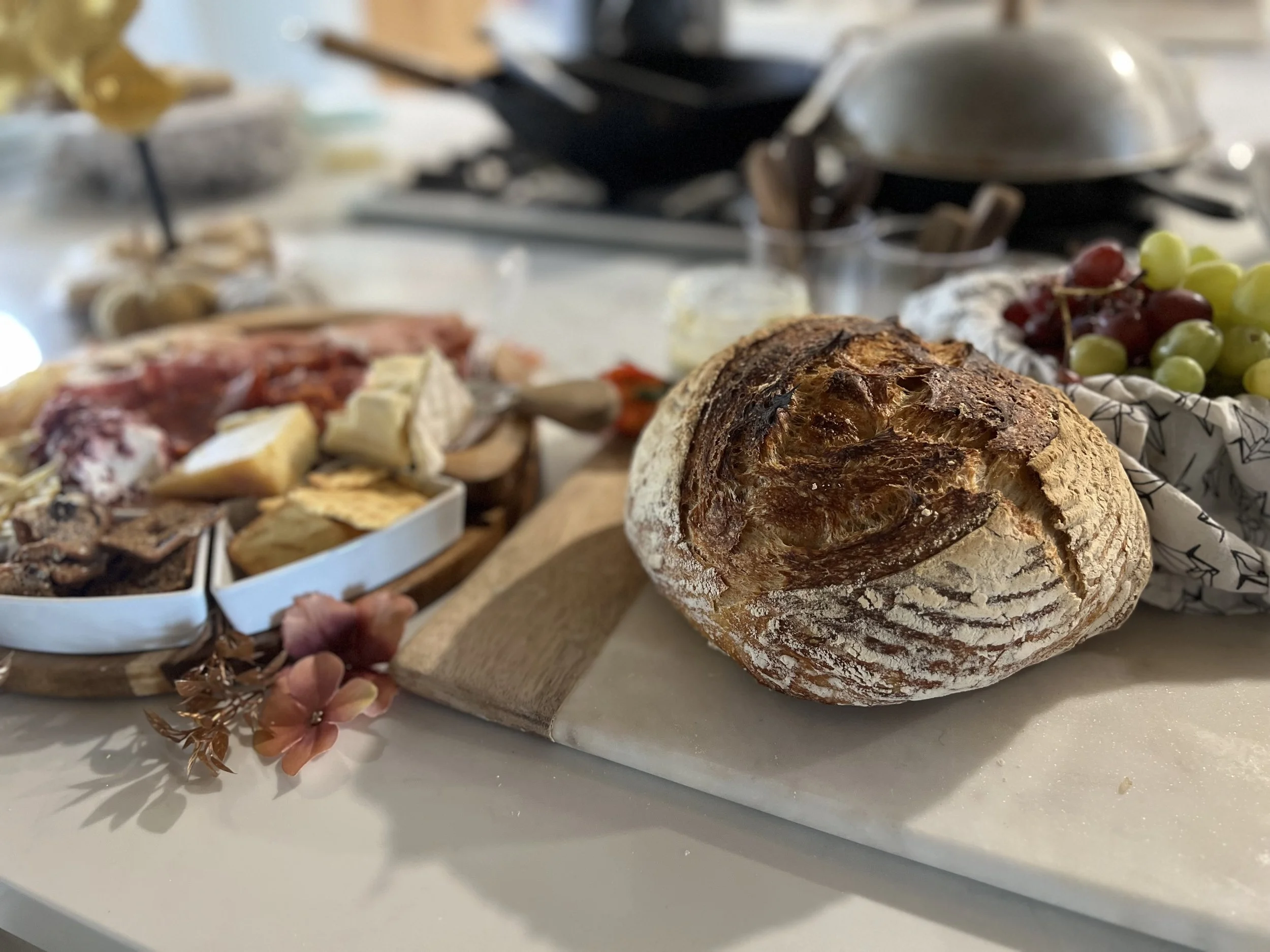Rustic Sourdough Recipe
This is the recipe that gave me the confidence to make sourdough and continues to deliver impressive, beautiful bakes and deep flavor. It’s a pure levain dough but I’ll admit that I sometimes add 1-2 tsp. of instant yeast to give it extra volume and large, gaseous bubbles. The long overnight bulk fermentation allows the dough to comfortably stretch and triple in volume by morning.
This recipe makes a single 1.5 lb. loaf within 2 days (day one for the levain, bulk fermentation overnight, day two for final proof and bake). I’ve added timestamps to make this sourdough as user-friendly as possible!
Recipe adapted from Flour Water Salt Yeast
Levain Ingredients
50g mature, active levain (this is your starter)
200g bread flour
50g whole wheat flour
200g water (85ºF-90ºF or 29ºC-32ºC)
9AM: Make the levain
Mix by hand until just incorporated. Do not knead.
Cover and rest at room temperature for 7-9 hours. It should double in size and look gassy, sticky, and wet.
5PM: Mix the dough ingredients
402g bread flour
38g whole wheat flour
342g water (90ºF-95ºF or 32ºC-35ºC)
11g fine sea salt
1-2 tsp instant yeast (optional if you want extra volume insurance)
108g levain (what you made earlier)
To begin making the dough:
Mix the bread flour and whole wheat flour by hand to incorporate. Add the water and salt. Mix until just incorporated. Cover and rest for 30 mins.
5:30PM: Mix the final dough
Add the instant yeast (optional) and levain evenly over the top of the dough. Massage and pinch the dough together to combine the ingredients. It’s sticky now but will get smoother over time. Cover and rest for 30 mins.
6:30PM–bedtime: Fold the dough 3-4 more times
Because overnight levain dough expands very slowly, the rest of the folds can happen anytime that’s convenient for you. Each time you fold, massage and pinch the dough to break apart the dry flour bits. This is when you knead, but it doesn’t have to be aggressive.
Cover with a damp kitchen towel and kiss your dough goodnight.
8AM: Shape the dough
When the dough is nearly triple its original volume (usually 12-15 hours after mixing), it’s ready to be divided.
Ease the dough out of the tub onto a lightly floured work surface. Peel any remaining dough out of the container too – that’s good stuff.
Fold the sides inward and roll the dough up into a little ball. Continue rolling it neatly into a tight ball.
Place the dough ball into a proofing basket, seam side up. Cover with a damp kitchen towel and rest for up to 4 hours.
12PM: Bake
Preheat the oven to 475ºF (245ºC).
Put a dutch oven on the middle rack. I like to put a baking tray on the bottom rack to protect the crust from getting too crisp.
Cut a sheet of parchment paper into a round.
Gentle ease the dough out of the proofing basket and onto the parchment paper.
Score the top with a bread lame or sharp knife.
Remove the hot dutch oven, carefully place the dough inside.
Bake for 25 mins. covered.
Remove the lid and continue baking for 25 mins uncovered.
Remove from the oven and cool completely on a wire rack.





